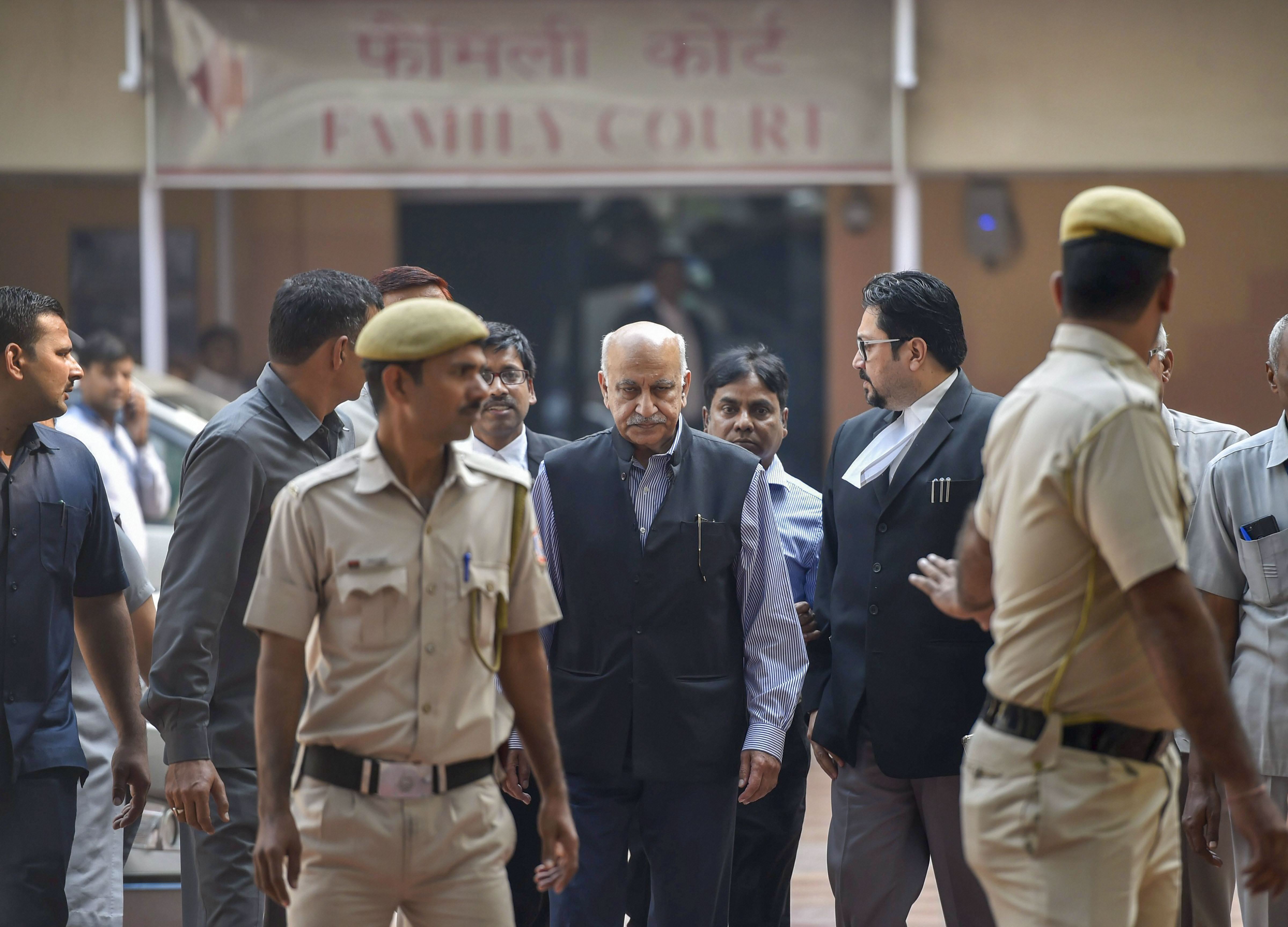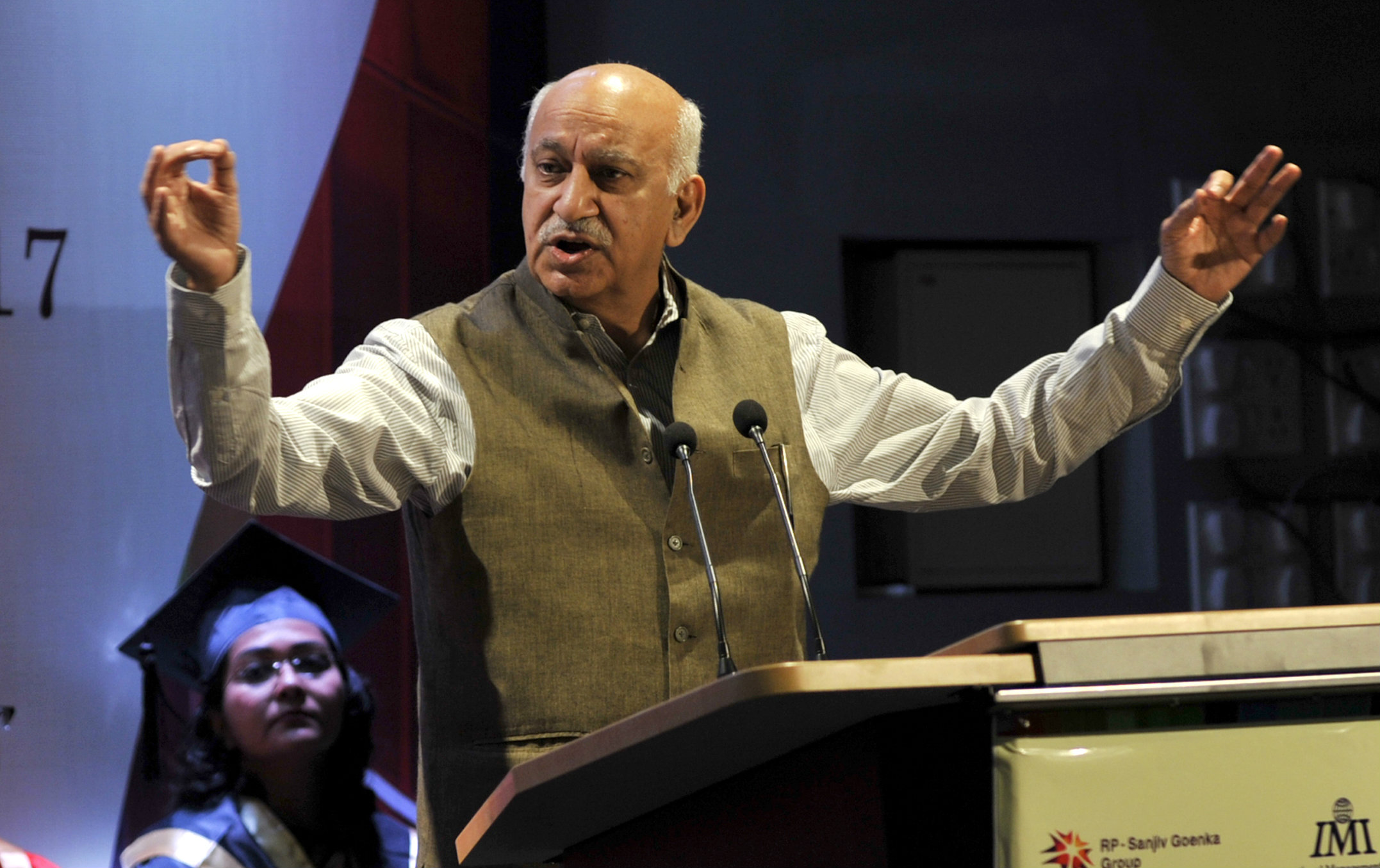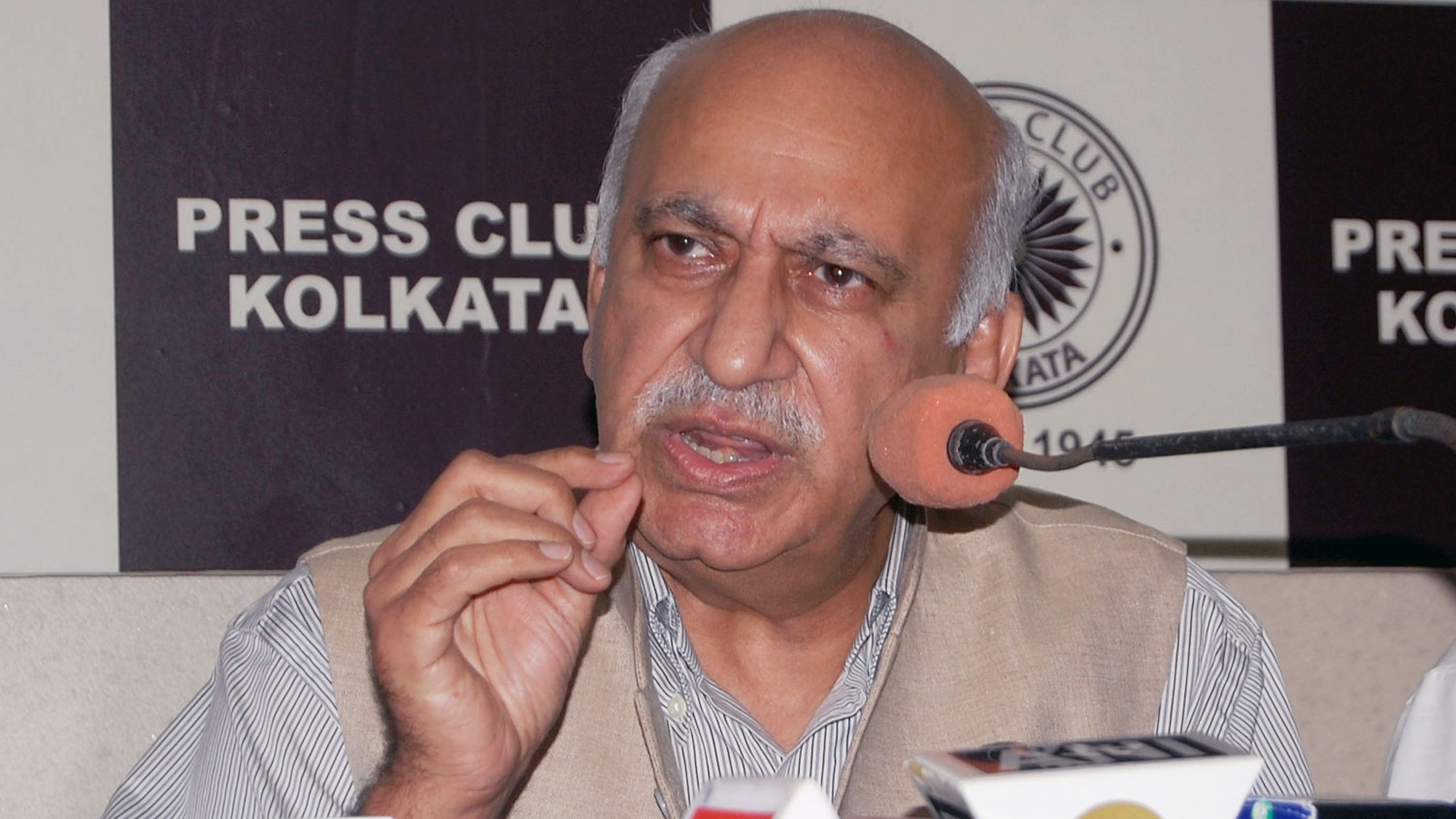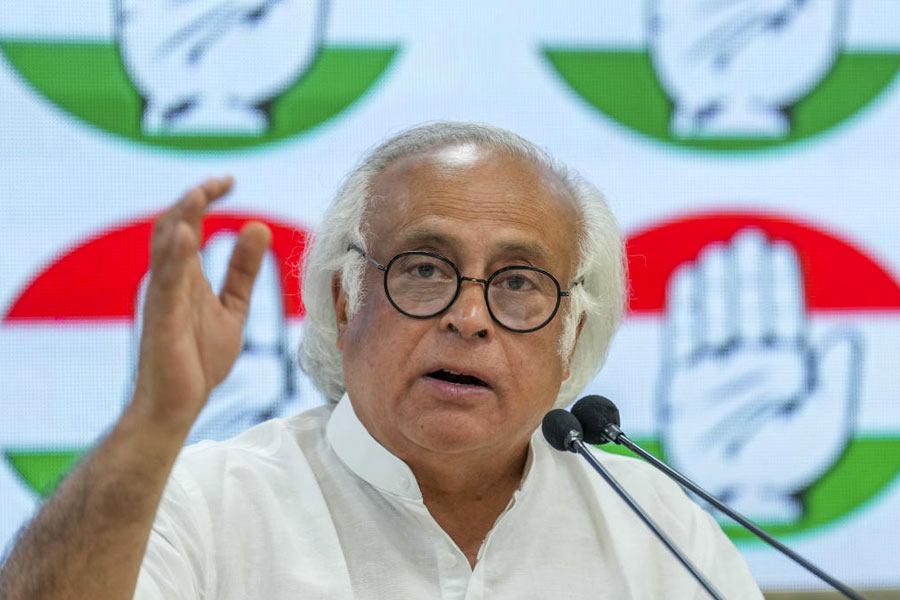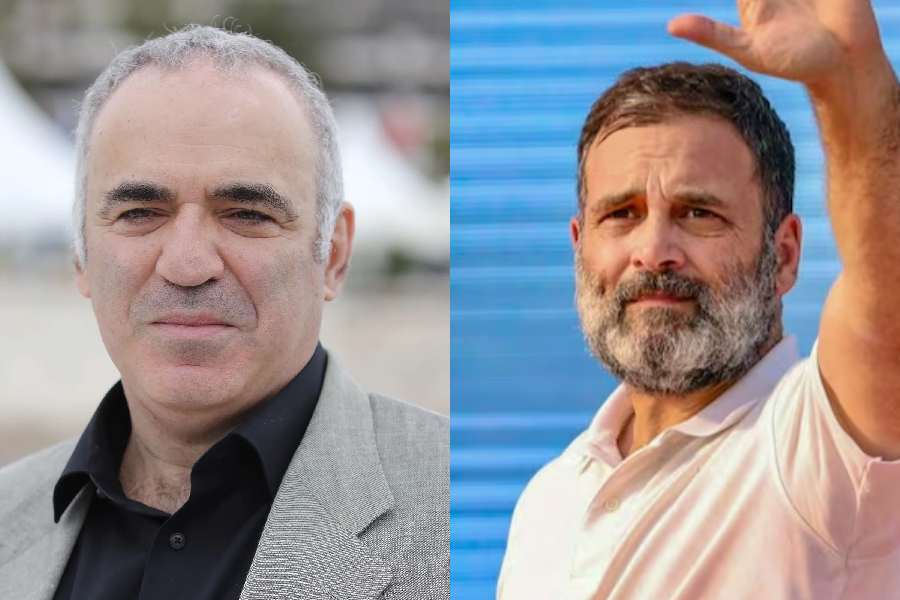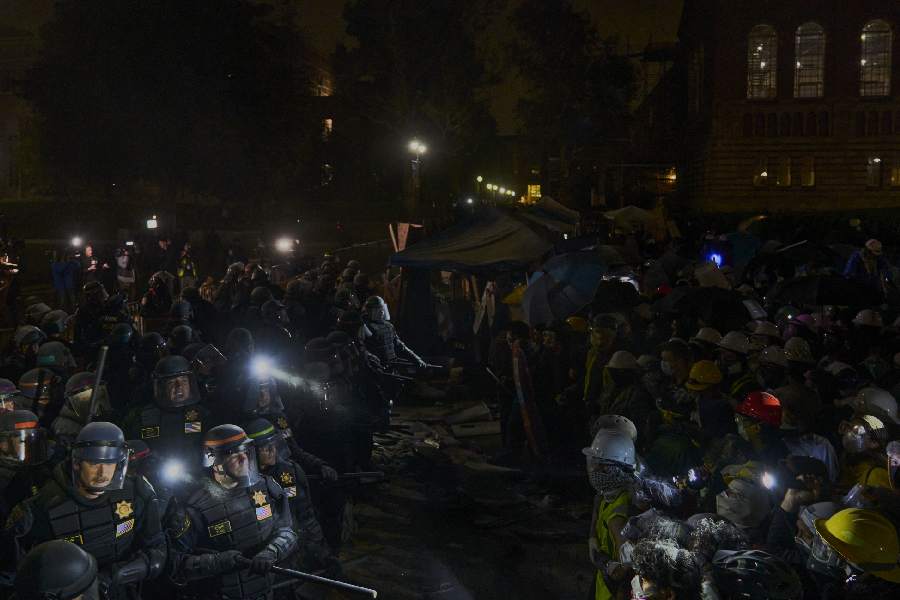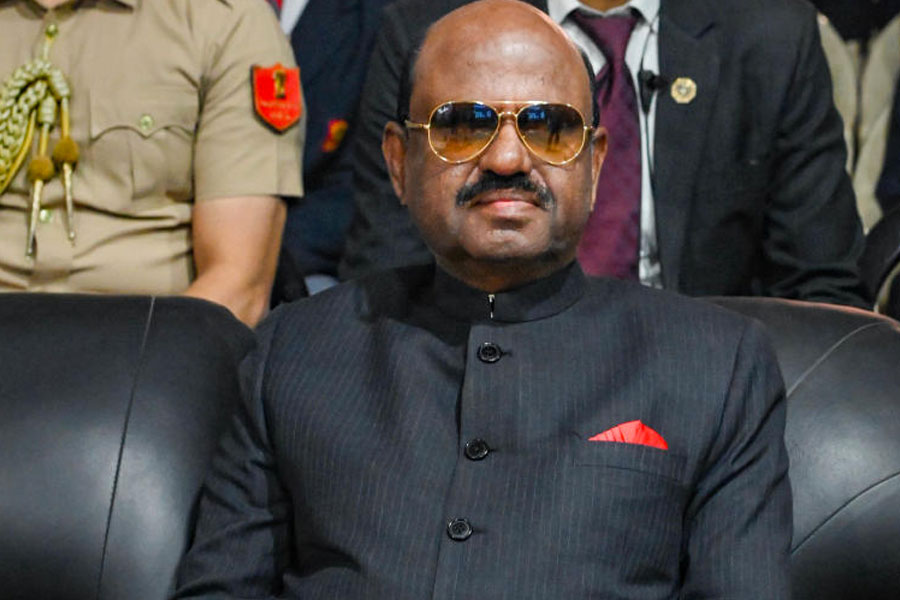A US-based journalist has accused M.J. Akbar of raping her 23 years ago, saying he used his position as the editor-in-chief of a newspaper to prey on her.
Akbar has denied the allegations, saying he was in a consensual relationship with Pallavi Gogoi for several months, but it ended “perhaps not on the best note”. In a separate statement, his wife Mallika Akbar also dismissed Gogoi’s accusations, calling it a “lie”.
The latest in a series of accusations against the former Union minister, Gogoi’s account comes a couple of days after he dismissed Priya Ramani’s charges in court as “concocted and false”.
Akbar, 67, resigned from the Union Council of Ministers in October after multiple women came out with accounts of alleged sexual harassment amid the raging #MeToo movement. Gogoi is the first woman, however, to accuse Akbar of rape.
Gogoi, the chief business editor of National Public Radio (NPR), a Washington-based American media organisation, has detailed the “most painful memories” of her life in an article in The Washington Post.
“What I am about to share are the most painful memories of my life. I have shelved them away for 23 years,” she says, detailing how Akbar physically and mentally harassed her for years, following her from New Delhi to Mumbai, Jaipur and London.

He... suddenly lunged to kiss me. I reeled. I emerged from the office, red-faced, confused, ashamed, destroyed.
Pallavi Gogoi
Gogoi said she was 22 when she joined Asian Age. Her story has an eerily similar start, and pattern, to the accounts of several other women Akbar allegedly preyed on. She was enamoured of the “brilliant” — though frequently angry and abusive — editor as she learnt the ropes of journalism. “I was mesmerized by his use of language, his turns of phrase, wishing that I could write like he did. So I took all the verbal abuse. After all, I was learning from the best. Or so I thought,” she writes.
At 23, Gogoi became the editor of the op-ed page, a huge responsibility thrust on her young shoulders. “But I would soon pay a very big price for doing a job I loved,” she says.
“It must have been late spring or summer of 1994, and I had gone into his office — his door was often closed. I went to show him the op-ed page I had created with what I thought were clever headlines. He applauded my effort and suddenly lunged to kiss me. I reeled. I emerged from the office, red-faced, confused, ashamed, destroyed,” she alleges.
The second incident occurred a few months later when Gogoi was summoned to Mumbai to help launch a magazine, she says.
“He called me to his room at the fancy Taj hotel, again to see the layouts. When he again came close to me to kiss me, I fought him and pushed him away. He scratched my face as I ran away, tears streaming down. That evening, I explained the scratches to a friend by telling her I had slipped and fallen at the hotel,” she writes.

In his hotel room, even though I fought him, he was physically more powerful. He ripped off my clothes and raped me.
Pallavi Gogoi
When Gogoi got back to Delhi, Akbar threatened to kick her out of the job if she resisted him again, she says. But she didn’t quit.
A reporting assignment took her to a remote village, a few hundred miles from Delhi, and then to Jaipur. Gogoi writes that Akbar told her she could come to his hotel in Jaipur to discuss the story.
“In his hotel room, even though I fought him, he was physically more powerful. He ripped off my clothes and raped me,” she alleges, adding that instead of reporting him to the police, she was filled with shame.
“I didn’t tell anyone about this then. Would anyone have believed me? I blamed myself,” Gogoi says.
She alleges that since that night, Akbar’s grip over her got tighter — for a few months, he continued to abuse her sexually, verbally, emotionally, and he would burst into a rage in the newsroom if he saw her talking to male colleagues.
“I cannot explain today how and why he had such power over me, why I succumbed. Was it because I was afraid of losing my job? I just know that I hated myself then. And I died a little every day,” she says.
She continued to look for reporting assignments that would take her far away from her editor, Gogoi says, adding that Akbar rewarded her for her coverage of the December 1994 elections by sending her either to the US or the UK.
“I thought that finally, the abuse would stop because I would be far away from the Delhi office. Except the truth was that he was sending me away so I could have no defences and he could prey on me whenever he visited the city,” she says.
Gogoi alleges that Akbar once worked himself into a rage in the London office after he saw her talking to a male colleague. “After my colleagues left work that evening, he hit me and went on a rampage, throwing things from the desk at me — a pair of scissors, a paperweight, whatever he could get his hands on. I ran away from the office and hid in Hyde Park for an hour…. I was in shreds — emotionally, physically, mentally,” she says.

He feels he is entitled to make up his own version of ‘truth’ today, just like he felt entitled to our bodies then.
Pallavi Gogoi
Akbar summoned her back to Mumbai after which she left the job and joined Dow Jones in New York, Gogoi recalls.
“Today, I am a US citizen. I am a wife and mother. I found my love for journalism again. I picked up my life, piece by piece…. I know that I do not have to succumb to assault to have a job and succeed,” she writes.
Gogoi says she has avoided mentioning Akbar in conversations. She believed he was above law, and would “never pay the price for what he had done to me”.
Talking about Akbar’s dismissal of sexual harassment charges against him as “baseless and wild”, Gogoi says she is not surprised. “He feels he is entitled to make up his own version of ‘truth’ today, just like he felt entitled to our bodies then,” Gogoi added.

I don’t know Pallavi's reasons for telling this lie but a lie it is.
Mallika Akbar
Akbar responded to the charges in a statement, saying: “Somewhere around 1994, Ms Pallavi Gogoi and I entered into a consensual relationship that spanned several months…. This relationship gave rise to talk and would later cause significant strife in my home life as well. This consensual relationship ended, perhaps not on the best note,” he said.
In her statement, his wife Mallika said: “More than twenty years ago, Pallavi Gogoi caused unhappiness and discord in our home. I learned of her and my husband’s involvement through her late night phone calls and her public display of affection in my presence…. I don’t know Pallavi's reasons for telling this lie but a lie it is.”
Written with PTI reports

